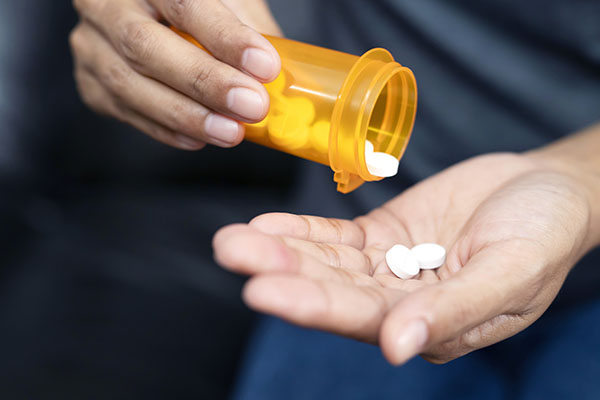
It is estimated that in 2019, 10.1 million people — 3% of Americans — misused opioids. These numbers might be hard to envision, so imagine this: If you have 300 friends on Facebook, nine of them might be struggling with opioid addiction.
Or, if you went to a sporting event at the biggest stadium in the country (which holds 107,601 people), more than 3,000 of them might be at risk for an opioid overdose. This is an epidemic that might be affecting more people in your own life and community than you realize.

You may have heard the phrase “opioid epidemic,” but you may not know much about it. There are many stigmas associated with substance use and opioids that can stop people from learning more about this issue — and how we can address this public health crisis in our community.
August 31, 2022 is International Overdose Awareness Day, and it is a great time to better understand substance abuse and opioids. Learn more about opioid use and what you can do to support your friends, family, and community.
What Are Opioids?
The word "opioid" refers to a specific kind or class of drugs — sometimes called narcotics. They are called opioids because when taken, the drugs interact with a part of your nerve cells called "opioid receptors." These opioid receptors control messages of pain and pleasure.
Common opioids that you may be familiar with include:
- Heroin
- Fentanyl
- Morphine
- Codeine
- Oxycodone (OxyContin®)
- Hydrocodone (Vicodin®)
Opioids are used to treat pain by blocking the messages being sent from your body to your brain. Many of these opioids are drugs that can be acquired legally with a prescription from your doctor — and are safe for pain management in the correct dosage and usage length. But, opioids can also be highly addictive over time.
Because many people can be prescribed opioids, it is important to remember that opioid overdoses do not only happen when someone is trying to get high.
An overdose can occur if someone:
- Takes opioids intending to get high
- Takes their prescription opioid too often or in the wrong dosage
- Mixes opioids with alcohol, illegal drugs or other medications
- Takes an opioid that is not prescribed to them or by mistake
- Is prescribed opioids but is at a higher risk for an overdose
Signs of an Overdose
Signs of an overdose can be seen in different parts of the body. If you think someone may be experiencing an opioid overdose, look out for changes in their:
-
Pupils: Will become very small like a pinpoint
- Breathing: Will become slow and shallow — may also experience choking or make wet, gurgling sounds
- Consciousness: The person may pass out or seem to just fall asleep
- Skin: Will become cold and pale or blue in color
- Body: Will become limp
What to Do if Someone Is Overdosing
If someone is experiencing an overdose:
- Immediately call 911, and tell them where you are and what's happening.
- If you have naloxone, administer it to the person overdosing.
- Roll the person overdosing onto their side to prevent choking.
- Talk to them to try to keep them awake.
- Stay with that person until emergency responders arrive.
Getting and Using Naloxone
Naloxone is a life-saving drug that can help someone experiencing an overdose. Naloxone can be given in the form of a nasal spray or it can be injected (similar to an EpiPen) — though the nasal spray is more common. Often referred to by the brand name NARCAN, naloxone can be the difference between life and death for someone who is overdosing.
When someone receives naloxone, it reverses the effects of an overdose and can help return their breathing back to normal in as little as two minutes.
Due to a "standing order" in Pennsylvania, any friend, family member, or community member can go to the pharmacy with a prescription for naloxone that you print out at home provided by the state.
While it might seem like something only a medical professional can do, anyone in the state of Pennsylvania can acquire and administer a dose of naloxone if they think a person is experiencing an overdose.
By taking a short training and getting naloxone through your local pharmacy, you can have the tools and knowledge to save someone's life.
Get Support for a Substance Use Disorder
If you or someone you love is living with a substance use disorder, you do not have to go through it alone. You can find support through Chester County Hospital, as well as your local community.
Community Resources:
- Stop Overdose Chester County: A local organization working towards a safer and healthier Chester County, free from overdose deaths
- PA Department of Health: Provides information about opioid use and can connect individuals to other local resources for living with a substance use disorder
Chester County Hospital Resources:
Addressing opioid use in Pennsylvania is challenging — and we cannot do it alone. Only when we come together with community organizations, government agencies and the individual members of our community, can we make a difference and save lives.
If you or a loved one is struggling with substance use, learn more about Psychiatry Services at Chester County Hospital or call 800-789-PENN (7366) for Physician Referrals.